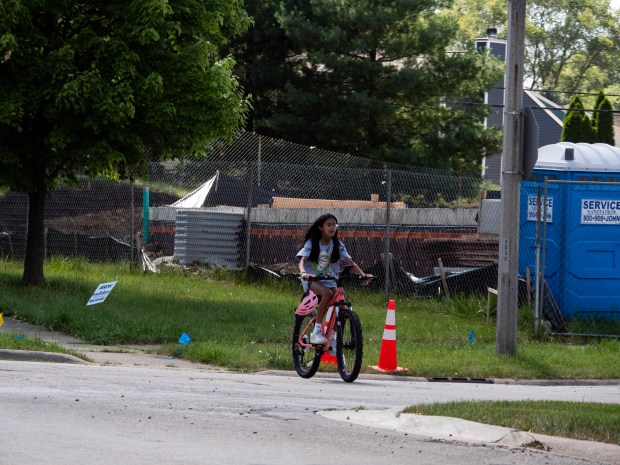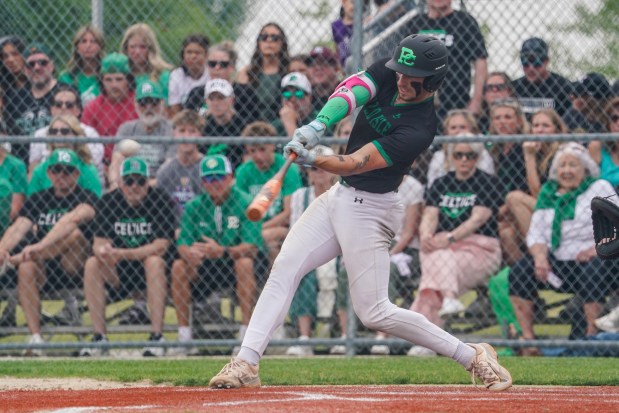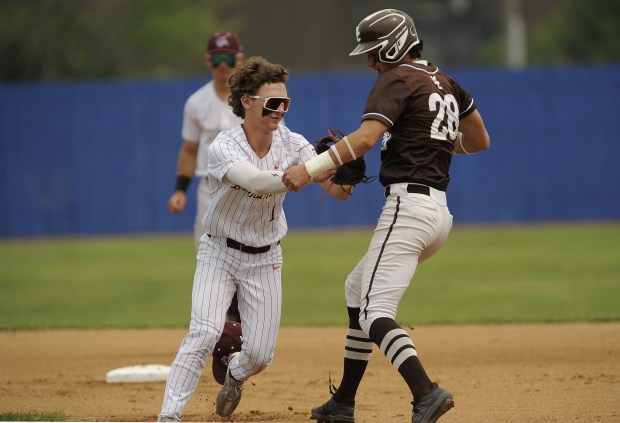The last time Naperville updated its bike plan, 19-year-old Riley Leu was barely a toddler. Now she and a group of climate-minded young adults are devoted to seeing the plan mature with them.
Leu is part of a team of interns with Naperville-based nonprofit Accelerate Climate Solutions whose task this summer is to explore ways the city could improve its accessibility for bikers.
But the project is more than a learning experience for the students. It’s actionable — or at least that’s the goal.
The Naperville City Council at a recent meeting established a long list of priorities to guide city actions and targets over the next few years. One of them was revamping the city’s bike plan by the end of 2026.
With a timeline for an update set, the Accelerate interns are devising their bikeability recommendations with the hope they’ll be considered and even integrated into any bike-related projects or plans the city adopts.
“I think right now (the goal) is to get (the city) to listen,” said Leu, who will be a sophomore at Iowa State University in the fall.
Founded in 2023, Accelerate seeks to help community members, businesses and organizations in Naperville and Aurora access the resources they need to become more sustainable and combat climate change.
Since its launch, the nonprofit has held a summer internship program giving high school and college students a hands-on opportunity to tackle local environmental issues. The program runs 10 hours a week through June and July.
Accelerate has 13 interns this summer, seven of whom are focused on the bike issue.
The bike team’s objective is simple: create a comprehensive overview of where Naperville’s bike infrastructure stands today and how it can be improved. Interns are calling the overview their “demonstration bike plan.”
To gauge current infrastructure, they have spent the past few weeks visiting various intersections and bike routes around town. The field visits will help them figure out where problems spots are and where their focus should be, says intern Soham Dongre, an incoming senior at Waubonsie Valley High School in Aurora.
The interns also are using online GIS data to track speed limits, road signs and where accidents most frequently occur. Finally, the team is surveying community members to see “how they feel about biking … (and) what they think the safety levels are,” Dongre, 17, said.
What they find will be used to devise potential improvements. Where possible, they will propose the addition of devoted, protected bike lanes. In other areas, where lanes aren’t feasible, they’ll lay out other courses of action — changing the configuration of intersections, better signage — to make bikes and cars more comfortable being in the same space, said Cathy Clarkin, Accelerate’s co-founder and executive director.
The interns plan to present their research and recommendations to city council members later this month.
“With awareness comes solutions,” Dongre said.
“There is a strong biking community in Naperville,” Leu added, “but we think it’s far from what it could be if we had better bike infrastructure.”
The framework for Naperville’s bike system was born in the late 1990s, when the city council passed the inaugural Bicycle & Pedestrian Plan that charted a blueprint for organizing a network of bike and pedestrian paths around town. That plan was updated in 2006, with a new Bike Implementation Plan that laid out where Naperville wanted to next build out its bikeway system.
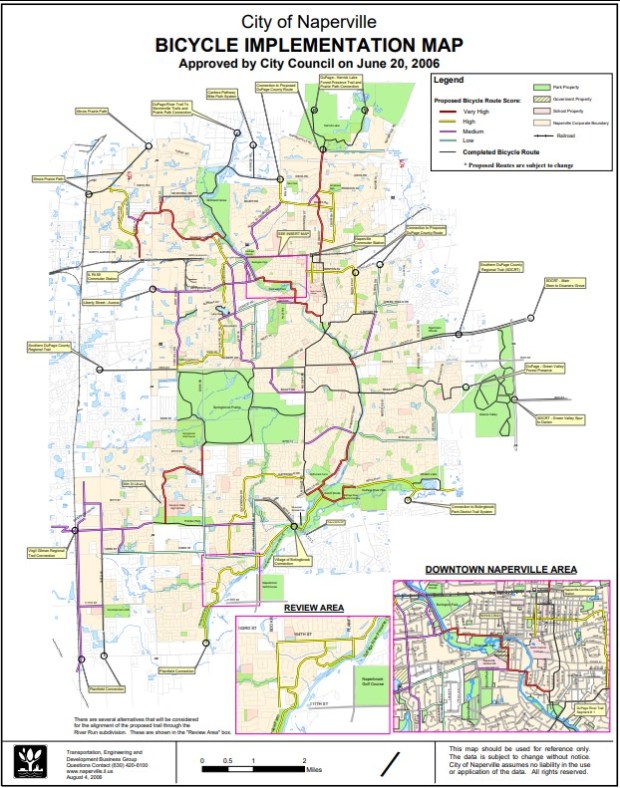
The city has been actively erecting, operating and maintaining that prospective system since then, says Bill Novack, director of Naperville’s Transportation, Engineering and Development department. To date, most of the bike infrastructure recommendations detailed in the city’s 2006 plan have come to fruition, barring a few gaps, he said.
“We’ve done very well,” he said.
With bike infrastructure work steadily ongoing over the past 18 years, there wasn’t a need for a revised bicycle plan until recently, Novack said. Demand aside, staff also have been waiting for an ideal time to take on that kind of project, he said.
“Timing wise, we had the recession in 2009, and after that we as a city greatly reduced services” for a number of years, Novack said. Then, there was the pandemic. “We were doing things that had to be done and not as many of the things that we would have liked to do.”
However, over the past year or so, the momentum for a new bike plan has been ramping up.
Last year, members of the Naperville Environment and Sustainability Task Force (NEST), the city’s Transportation Advisory Board and staff conducted a survey to better understand residents’ patterns, needs and priorities with regards to biking and walking around the city.
That survey was followed up by city council members last fall allocating $80,000 in the 2024 budget to hire a consultant to work with the city to update its bike plan. Novack said staff will put out a request for the submission of consultant proposals this fall.
The updated plan should not only review and make recommendatons for the city’s bike routes, but create ways community members can forgo their cars for alternative forms of transportation, Novack said. For instance, it should address how to make electric bikes more accessible in the city, he said.
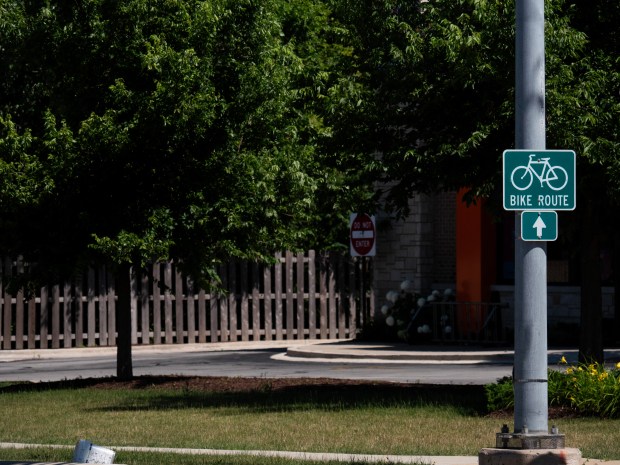
A biker himself, Novack said it’s enjoyable to ride around Naperville but as the bike industry evolves, there is room for improvement.
“(The trails) aren’t perfect,” he remarked, “but they’re very good.”
Novack assured that as the city moves forward with updating the bike plan, it will be open to hearing what the Accelerate interns recommend.


